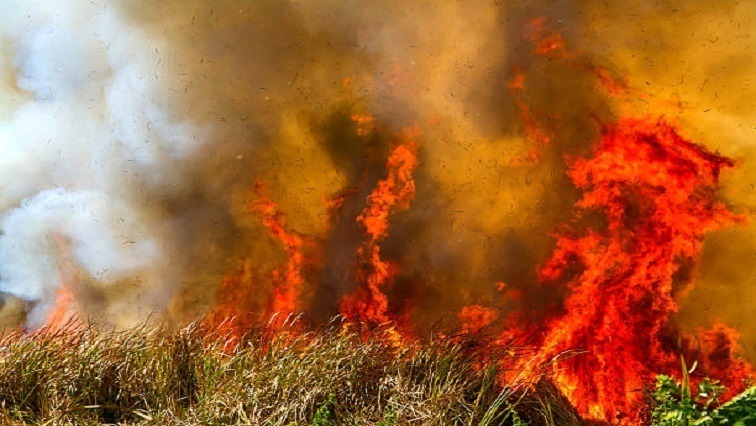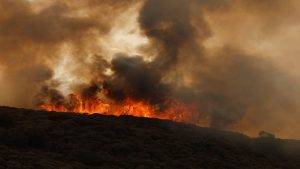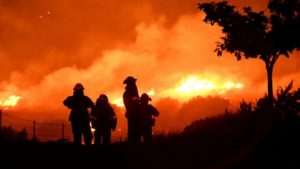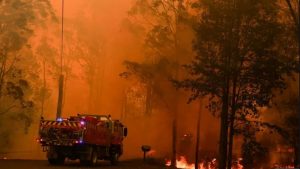A week after a blaze ignited in Wolseley in the Cape Winelands, the fire is still burning out of control. It has since moved into the Bainskloof Pass in the direction of Worcester, fueled by strong winds. Over 100 firefighters from numerous municipalities, supported by helicopters are on the scene. Around 40 structures such as sheds, have been destroyed.
Thick smoke covers the Slanghoek Valley. The area is a tourism destination and is renowned for its majestic views with vineyards lining the valley. Just beyond lies the majestic Bainskloof Pass. It is now closed to traffic as the blaze has burnt its way into the thick vegetation of the pass.
It’s difficult terrain for firefighters to work in as accessibility is very limited. Crews are stretched to the limit, working day and night for a week to try and contain the blaze.
“Due to the fact that the fire is split into two it creates a huge problem for us, so we need to concentrate on those things that is important, that is structures, lives and property. Once we have done that, we will move over to those areas that is the mountainous areas or the fynbos areas but it’s a fine balance. If you do not contain those areas within a prescribed time frame, then obviously, they will become an extensive area and a very large fire at the end of the day,” says Jaco Thuynsma, Incident commander.
Video: Wildfires continue to rage across Western Cape: Jo-Anne Otto
20 000 hectares of mostly indigenous fynbos has been burnt. Fynbos needs fire to regenerate every 12 to 15 years. Rare and ecologically sensitive Renosterveld in a nearby nature reserve is however of great concern.
Provincial authorities say as climate change impacts weather conditions making it more severe, smart planning and use of technology will become increasingly important.
“How do we go back at the end of this fire season, analyzing it, are we seeing it in our budgets, how do we get smarter at what we do. I really see smart technology, how do we even get better at using predictive technologies understanding that this piece of land hasn’t burnt for 15 years, what are we going to do proactively just before the rains so that it actually becomes less of a risk next year,” says Western Cape Premier Alan Winde.
The public is urged to adhere to warnings and safety precautions by legitimate sources such as local municipalities.
Video: W Cape Fires – Nature conservationists battle to protect vegetation from burning: Patrick Shone





